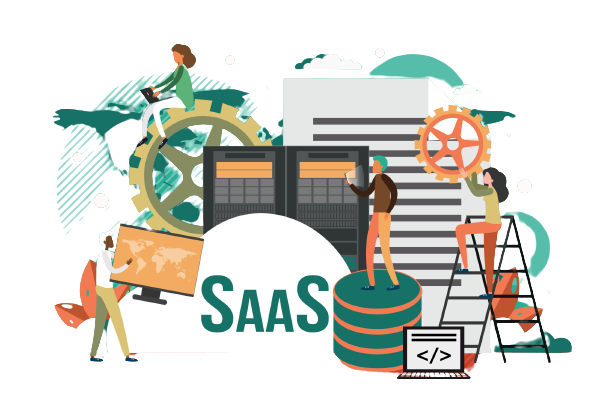
In the dynamic world of Software as a Service (SaaS), carving out your niche and gaining a competitive edge demands a savvy approach to marketing. SaaS startups, in particular, face unique challenges as they strive to make their mark in a crowded marketplace.
That’s where SaaS marketing automation steps in as your secret weapon. In a landscape where time is precious and every marketing move counts, harnessing the power of marketing automation can be a revolutionary ace. It not only streamlines your marketing efforts but also lets you engage, nurture, and convert leads with unmatched efficiency.
So, if you’re on a mission to take your SaaS startup to new heights, this blog post is tailor-made for you. In this blog, we’ll be diving deep into the world of marketing automation, uncovering the best practices that can fuel your startup’s growth. Whether you’re just starting out or seeking ways to fine-tune your marketing strategies, we’ve got the insights and actionable tips you need.
Are you ready to discover the marketing automation best practices that can propel your SaaS startup toward success, growth, and customer satisfaction? Let’s get together!
The Role of Marketing automation for SaaS: A Comprehensive Overview
Marketing automation plays a pivotal role in the growth and success of SaaS (Software as a Service) startups. This comprehensive overview aims to shed light on how marketing automation functions as a driving force in the SaaS industry.
What Is Marketing Automation?
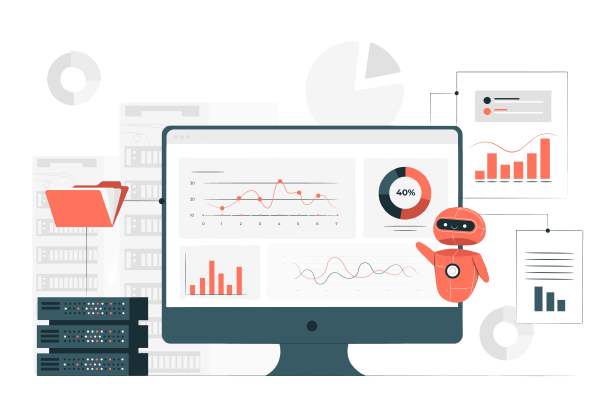
Marketing automation refers to the use of software and technology to automate repetitive marketing tasks and workflows. These tasks can range from email marketing and lead nurturing to social media posting and customer segmentation. The primary goal of marketing automation is to streamline marketing processes, improve efficiency, and drive revenue growth.
Why Is Marketing Automation Important for SaaS Startups?
- Efficiency and Scalability: SaaS startups often have limited resources, making it essential to maximize efficiency. Marketing automation allows startups to execute complex marketing campaigns with fewer personnel, enabling scalability as the business grows.
- Personalization: Successful SaaS marketing involves tailoring messages and offers to specific customer segments. Marketing automation tools facilitate personalized marketing, ensuring that the right message reaches the right audience at the right time.
- Lead Generation and Nurturing: SaaS startups rely on a steady influx of leads and the conversion of those leads into customers. Marketing automation streamlines lead generation and nurturing processes, ensuring a continuous flow of potential customers into the sales funnel.
- Data-Driven Decision Making: Marketing automation provides valuable data and insights into customer behavior and campaign performance. Startups can use this data to make informed decisions, optimize marketing strategies, and improve ROI.
- Improved Customer Retention: Retaining existing customers is often more cost-effective than acquiring new ones. Marketing automation can help SaaS companies engage with existing customers, provide relevant content, and reduce churn rates.
Why SaaS Startups Should Embrace Marketing Automation
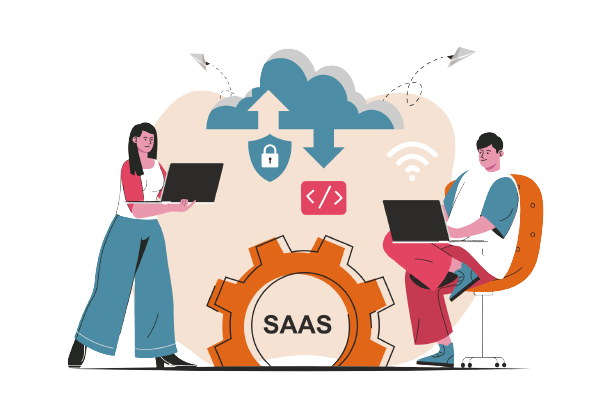
SaaS startups should embrace marketing automation for several compelling reasons:
- Competitive Advantage: The SaaS landscape is highly competitive, with numerous startups vying for attention. Those who implement marketing automation gain a competitive edge by delivering targeted and personalized marketing campaigns that resonate with their audience.
- Resource Optimization: Marketing automation enables SaaS startups to do more with less. It reduces the need for manual, time-consuming tasks, allowing team members to focus on strategy, creativity, and innovation.
- Scalability: As SaaS startups grow, they need marketing strategies that can scale accordingly. Marketing automation platforms are designed to handle larger volumes of leads and customers without a proportional increase in effort.
- Data-Driven Insights: Marketing automation tools provide valuable data on customer behavior, campaign performance, and conversion rates. This data empowers startups to make data-driven decisions, refine strategies, and allocate resources effectively.
- Enhanced Customer Experience: Marketing automation allows SaaS startups to deliver a seamless and personalized customer experience. From onboarding to support, automation ensures that customers receive relevant information and assistance at every touchpoint.
Common Misconceptions About Marketing Automation for SaaS

While marketing automation offers numerous benefits, it’s essential to address common misconceptions that can hinder its effectiveness in SaaS startups:
Misconception 1: Marketing Automation Is Only for Large Enterprises
- Reality: Marketing automation is suitable for businesses of all sizes, including SaaS startups. Many automation tools offer scalable solutions tailored to the needs and budgets of smaller companies.
Misconception 2: Marketing Automation Is a Set-and-Forget Solution
- Reality: Automation requires ongoing monitoring and optimization. Setting up automation processes is just the beginning; regularly review and adjust campaigns to ensure they remain effective and aligned with your goals.
Misconception 3: Marketing Automation Is All About Email
- Reality: While email marketing is a significant component of marketing automation, it’s not limited to it. Automation encompasses various channels, including social media, content marketing, lead scoring, and customer relationship management (CRM).
Misconception 4: Marketing Automation Means Less Personalization
- Reality: Marketing automation, when used correctly, enhances personalization. It enables you to segment your audience and deliver tailored content and offers, resulting in a more personalized customer experience.
Thus, it can be said that marketing automation is a powerful tool for SaaS startups, streamlining marketing efforts, improving efficiency, and driving growth.

In the dynamic world of Software as a Service (SaaS), carving out your niche and gaining a competitive edge demands a savvy approach to marketing. SaaS startups, in particular, face unique challenges as they strive to make their mark in a crowded marketplace.
That’s where SaaS marketing automation steps in as your secret weapon. In a landscape where time is precious and every marketing move counts, harnessing the power of marketing automation can be a revolutionary ace. It not only streamlines your marketing efforts but also lets you engage, nurture, and convert leads with unmatched efficiency.
So, if you’re on a mission to take your SaaS startup to new heights, this blog post is tailor-made for you. In this blog, we’ll be diving deep into the world of marketing automation, uncovering the best practices that can fuel your startup’s growth. Whether you’re just starting out or seeking ways to fine-tune your marketing strategies, we’ve got the insights and actionable tips you need.
Are you ready to discover the marketing automation best practices that can propel your SaaS startup toward success, growth, and customer satisfaction? Let’s get together!
The Role of Marketing automation for SaaS: A Comprehensive Overview
Marketing automation plays a pivotal role in the growth and success of SaaS (Software as a Service) startups. This comprehensive overview aims to shed light on how marketing automation functions as a driving force in the SaaS industry.
What Is Marketing Automation?

Marketing automation refers to the use of software and technology to automate repetitive marketing tasks and workflows. These tasks can range from email marketing and lead nurturing to social media posting and customer segmentation. The primary goal of marketing automation is to streamline marketing processes, improve efficiency, and drive revenue growth.
Why Is Marketing Automation Important for SaaS Startups?
- Efficiency and Scalability: SaaS startups often have limited resources, making it essential to maximize efficiency. Marketing automation allows startups to execute complex marketing campaigns with fewer personnel, enabling scalability as the business grows.
- Personalization: Successful SaaS marketing involves tailoring messages and offers to specific customer segments. Marketing automation tools facilitate personalized marketing, ensuring that the right message reaches the right audience at the right time.
- Lead Generation and Nurturing: SaaS startups rely on a steady influx of leads and the conversion of those leads into customers. Marketing automation streamlines lead generation and nurturing processes, ensuring a continuous flow of potential customers into the sales funnel.
- Data-Driven Decision Making: Marketing automation provides valuable data and insights into customer behavior and campaign performance. Startups can use this data to make informed decisions, optimize marketing strategies, and improve ROI.
- Improved Customer Retention: Retaining existing customers is often more cost-effective than acquiring new ones. Marketing automation can help SaaS companies engage with existing customers, provide relevant content, and reduce churn rates.
Why SaaS Startups Should Embrace Marketing Automation

SaaS startups should embrace marketing automation for several compelling reasons:
- Competitive Advantage: The SaaS landscape is highly competitive, with numerous startups vying for attention. Those who implement marketing automation gain a competitive edge by delivering targeted and personalized marketing campaigns that resonate with their audience.
- Resource Optimization: Marketing automation enables SaaS startups to do more with less. It reduces the need for manual, time-consuming tasks, allowing team members to focus on strategy, creativity, and innovation.
- Scalability: As SaaS startups grow, they need marketing strategies that can scale accordingly. Marketing automation platforms are designed to handle larger volumes of leads and customers without a proportional increase in effort.
- Data-Driven Insights: Marketing automation tools provide valuable data on customer behavior, campaign performance, and conversion rates. This data empowers startups to make data-driven decisions, refine strategies, and allocate resources effectively.
- Enhanced Customer Experience: Marketing automation allows SaaS startups to deliver a seamless and personalized customer experience. From onboarding to support, automation ensures that customers receive relevant information and assistance at every touchpoint.
Common Misconceptions About Marketing Automation for SaaS

While marketing automation offers numerous benefits, it’s essential to address common misconceptions that can hinder its effectiveness in SaaS startups:
Misconception 1: Marketing Automation Is Only for Large Enterprises
- Reality: Marketing automation is suitable for businesses of all sizes, including SaaS startups. Many automation tools offer scalable solutions tailored to the needs and budgets of smaller companies.
Misconception 2: Marketing Automation Is a Set-and-Forget Solution
- Reality: Automation requires ongoing monitoring and optimization. Setting up automation processes is just the beginning; regularly review and adjust campaigns to ensure they remain effective and aligned with your goals.
Misconception 3: Marketing Automation Is All About Email
- Reality: While email marketing is a significant component of marketing automation, it’s not limited to it. Automation encompasses various channels, including social media, content marketing, lead scoring, and customer relationship management (CRM).
Misconception 4: Marketing Automation Means Less Personalization
- Reality: Marketing automation, when used correctly, enhances personalization. It enables you to segment your audience and deliver tailored content and offers, resulting in a more personalized customer experience.
Thus, it can be said that marketing automation is a powerful tool for SaaS startups, streamlining marketing efforts, improving efficiency, and driving growth.
Setting Up Effective Marketing Automation for SaaS Startups

Setting up effective marketing automation for SaaS startups requires careful planning and execution. In this topic cluster, we’ll explore the key steps to implementing marketing automation, choosing the right tools, and integrating automation with your SaaS platform.
Key Steps to Implementing Marketing Automation in SaaS
Implementing marketing automation in your SaaS startup can be a transformative process. Here are the key steps to ensure a successful implementation:
Step 1: Define Your Goals: Start by identifying your marketing automation goals. Are you looking to increase lead generation, improve customer retention, or enhance your onboarding process? Understanding your objectives will guide your automation strategy.
Step 2: Know Your Audience: Segment your audience based on their behavior, demographics, and interactions with your SaaS product. Tailor your automation workflows to address the specific needs and pain points of each segment.
Step 3: Choose the Right Automation Software: Select a marketing automation platform that aligns with your startup’s needs and budget. Consider factors such as ease of use, scalability, integration capabilities, and the range of features offered.
Step 4: Build Automation Workflows: Create automated workflows that map the customer journey. This includes automating email sequences, personalized messages, and triggers based on user actions.
Step 5: Content Creation: Develop relevant and engaging content for your automated campaigns. Content plays a crucial role in nurturing leads and guiding them through the sales funnel.
Step 6: Test and Optimize: Regularly test your automation workflows to ensure they are effective. Use A/B testing to optimize email subject lines, messaging, and calls to action for better results.
Step 7: Monitor and Analyze: Implement tracking and analytics tools to monitor the performance of your automation campaigns. Analyze the data to identify areas for improvement and refine your strategies accordingly.
Choosing the Right Marketing Automation Tools for Your SaaS Startup
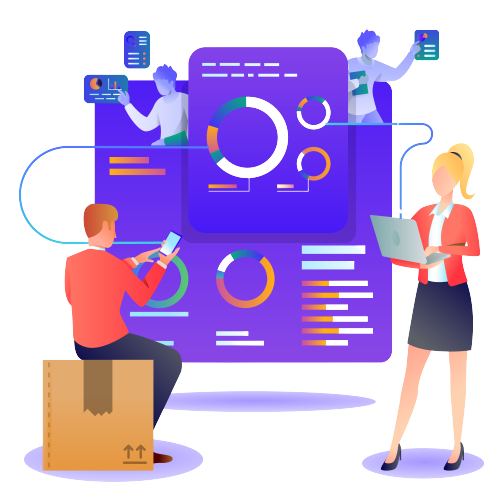
Selecting the right marketing automation tools is a critical decision for your SaaS startup’s success. Here are some considerations when choosing these tools:
- Scalability: Ensure that the automation tools can grow with your startup. As you acquire more customers and expand, your automation needs will evolve. Look for solutions that offer scalability.
- Integration Capabilities: Integration with your existing software stack, including your SaaS platform, CRM, and other tools, is essential. Seamless data flow between systems enhances efficiency and accuracy.
- Ease of Use: The user-friendliness of the automation platform matters. A user-friendly interface simplifies the setup and management of automation workflows, allowing your team to be more productive.
- Feature Set: Evaluate the features offered by the automation tools. Look for capabilities such as email marketing, lead scoring, lead nurturing, and analytics. Ensure the tool aligns with your specific needs.
- Pricing Structure: Understand the pricing structure of the automation tool, including subscription fees, usage-based charges, and any additional costs for extra features or users. Choose a tool that fits your budget.
- Customer Support: Reliable customer support is crucial. In case of issues or questions, having access to knowledgeable support staff can be a lifesaver.
- User Reviews and Recommendations: Read user reviews and seek recommendations from other SaaS startups in your network. Their experiences can provide valuable insights into the suitability of different automation tools.
Integrating Marketing Automation with Your SaaS Platform
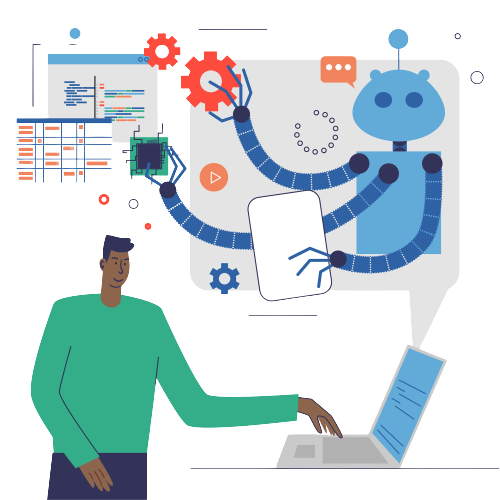
Integrating marketing automation seamlessly with your SaaS platform is vital for a unified and efficient customer experience. Here’s how to go about it:
- API Integration: Many marketing automation tools offer APIs (Application Programming Interfaces) that allow you to connect them with your SaaS platform. Work with your development team or hire developers if needed to facilitate this integration.
- Data Synchronization: Ensure that data flows smoothly between your SaaS platform and the marketing automation tool. This includes user information, subscription data, and user behavior.
- Personalization: Leverage the integrated data to create personalized marketing automation campaigns. This could include personalized emails, in-app messages, and targeted offers based on user activity within your SaaS platform.
- Behavioral Triggers: Set up automation triggers based on user behavior within your SaaS platform. For example, if a user completes a specific action, it can trigger an automated email sequence.
- Reporting and Analytics: Integrate reporting and analytics tools to track the performance of your marketing automation campaigns in relation to your SaaS platform. This consolidated data helps in making data-driven decisions.
- Continuous Optimization: Regularly review and optimize the integration to ensure it aligns with your evolving business needs and goals. This may involve adjusting automation workflows, refining data synchronization, and enhancing personalization efforts.
By following the key steps for implementation, carefully selecting the right automation tools, and seamlessly integrating automation with your SaaS platform, you can create a powerful marketing engine that contributes to the success of your startup in a competitive market.
Segmentation and Personalization: The Cornerstones of SaaS Marketing Automation
Segmentation and personalization are the twin pillars of successful marketing automation in the SaaS industry. They allow you to tailor your marketing efforts to individual customer needs and preferences, leading to higher engagement and conversion rates. Here’s a closer look at these essential aspects:
Segmentation:
Segmentation involves dividing your audience into distinct groups based on common characteristics. In the context of SaaS, this can include factors like industry, company size, location, usage patterns, or subscription level.
Benefits of Segmentation:
- Relevance: Segmenting your audience allows you to send highly relevant messages to each group, increasing the chances of engagement.
- Targeted Content: You can create content and offers tailored to the specific needs and pain points of each segment.
- Improved Conversion Rates: Segmented email campaigns often result in higher open and click-through rates, translating into better conversion rates.
Personalization:
Personalization takes segmentation a step further by customizing content and messaging for each individual within a segment. This can include using the recipient’s name, referencing their previous interactions with your platform, or suggesting content based on their past behavior.
Benefits of Personalization:
- Enhanced Customer Experience: Personalized interactions make customers feel valued and understood, fostering a positive relationship with your brand.
- Increased Engagement: Personalized emails and messages tend to capture the recipient’s attention and drive action.
- Higher Retention Rates: Customers are more likely to stick around when they receive tailored recommendations and support.
Automated Email Marketing Strategies for SaaS Startups
Email marketing remains a cornerstone of SaaS marketing strategies, and automation has made it even more powerful. Here are some key strategies for leveraging automated email marketing in SaaS startups:
- Onboarding Sequences: Create automated onboarding sequences that welcome new users, introduce them to your software’s features, and guide them through the initial setup. Tailor these sequences based on the user’s segment or behavior.
- Drip Campaigns: Drip campaigns involve sending a series of automated emails to nurture leads over time. They can include educational content, case studies, testimonials, and special offers to move leads through the sales funnel.
- Product Updates and Education: Keep your users informed about new features, updates, and best practices through automated emails. Highlight how these changes can benefit them and provide resources for further learning.
- Abandoned Cart Recovery: If your SaaS product has a subscription or shopping cart, implement automated emails to recover abandoned carts or unfinished sign-ups. Offer incentives or reminders to entice users to complete the action.
- Customer Retention: Use automation to engage with existing customers, gather feedback, and provide ongoing value. Send renewal reminders, ask for reviews, or offer upsell opportunities based on their usage patterns.
Leveraging Marketing Automation for Lead Nurturing in SaaS
Lead nurturing is a crucial element of SaaS marketing, and marketing automation plays a pivotal role in this process. Lead nurturing involves guiding leads through the sales funnel, building relationships, and ultimately converting them into paying customers. Here’s how to leverage marketing automation for effective lead nurturing in SaaS:
- Lead Scoring: Implement lead scoring mechanisms to assign values to leads based on their actions, behavior, and demographics. Use automation to track these scores and trigger specific nurturing actions based on lead scores.
- Automated Workflows: Create automated workflows that send targeted content and communications to leads at different stages of their journey. For example, leads who have downloaded a whitepaper may receive follow-up emails with related content or invitations to webinars.
- Behavior-Based Triggers: Set up triggers that respond to specific actions or behaviors of leads. For instance, if a lead visits your pricing page multiple times, trigger an email with pricing details and a call to action.
- Lead Reengagement: Use automation to identify and reengage with leads that have gone cold. Send them reactivation campaigns with valuable content or special offers to reignite their interest.
- Integration with CRM: Integrate your marketing automation platform with your Customer Relationship Management (CRM) system to ensure a seamless flow of lead data and improve lead nurturing efforts.
Segmenting and personalizing your communications, implementing automated email marketing strategies, and effectively nurturing leads through automation are key components of a successful marketing automation strategy. With these strategies, your SaaS startup can effectively leverage marketing automation to achieve its growth and retention goals.
Metrics that Matter: Tracking the Success of Your Marketing Automation Efforts
When it comes to marketing automation in SaaS, success is not merely about implementing the technology—it’s about using it effectively and efficiently. To gauge the effectiveness of your marketing automation efforts, you need to focus on the right metrics. Here are some essential metrics that matter:
- Conversion Rates: Conversion rates are a fundamental metric in marketing automation. They measure the percentage of your audience that takes a desired action, such as signing up for a trial or making a purchase. Understanding conversion rates at different stages of your marketing funnel can help pinpoint where improvements are needed.
- Lead Quality: Not all leads are created equal. Assess the quality of your leads by tracking metrics like lead source, demographic data, and lead behavior. This allows you to allocate resources more effectively and target high-quality prospects.
- Customer Acquisition Cost (CAC): CAC measures the cost of acquiring a new customer. This includes expenses related to marketing campaigns, sales efforts, and other associated costs. A lower CAC is generally more desirable, indicating efficient customer acquisition.
- Customer Lifetime Value (CLV): CLV estimates the total revenue a customer is expected to generate over their lifetime as a customer. This metric helps you identify the long-term value of your marketing efforts and guides your marketing strategies accordingly.
- Churn Rate: The churn rate measures the rate at which customers cancel or stop using your SaaS product. Reducing churn is critical for SaaS success, and marketing automation can play a role in customer retention efforts.
- Email Engagement Metrics: For email marketing automation, track metrics like open rates, click-through rates, and conversion rates for email campaigns. These metrics provide insights into the effectiveness of your email marketing strategies.
- Marketing Attribution: Attribution models help you understand how different marketing channels contribute to conversions. By assigning value to each touchpoint in the customer journey, you can optimize your marketing mix for better results.
By tracking the right metrics and leveraging data analytics, you can not only assess the success of your marketing efforts but also continuously improve them to maximize ROI.
Conclusion: Maximizing Marketing Automation for SaaS Success
As we conclude our exploration of marketing automation in the realm of SaaS, it’s essential to reflect on the key takeaways from this journey. Marketing automation isn’t just a buzzword; it’s a pivotal strategy that can propel your SaaS startup to new heights when executed effectively. Here are the key takeaways to keep in mind:
- Metrics Matter: Prioritize essential metrics like conversion rates, lead quality, and customer lifetime value.
- Data is Key: Leverage data analytics to gain customer insights and continually refine strategies.
- Segmentation and Personalization: Tailor your campaigns to specific audience segments for higher engagement.
- Continuous Optimization: Embrace a culture of improvement by regularly reviewing data and conducting A/B tests.
- Predictive Analytics: Anticipate customer behavior and proactively target high-value prospects.
- AI Efficiency: Explore AI and machine learning for automated data analysis.
- Customer Journey Mapping: Understand touchpoints for more effective automation.
- ROI Focus: Always measure ROI to allocate resources effectively.
- Human Touch: Balance automation with personalization for authentic customer connections.
- Stay Informed: Keep up with evolving trends and technologies in marketing automation.
Marketing automation for SaaS is your ticket to efficient customer engagement and sustainable growth in the competitive SaaS landscape. By applying these best practices, you can navigate the evolving terrain and position your SaaS startup for lasting success.